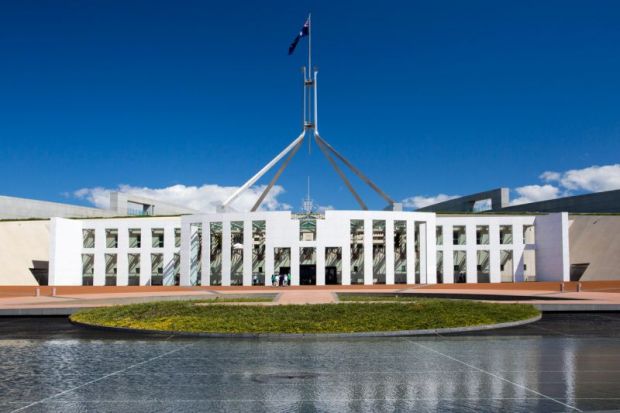Australia’s education minister has claimed that universities’ opposition to proposed funding cuts amount to “empty rhetoric” and that institutions can simply become more efficient to cope with a A$2.8 billion (£1.6 billion) loss in income.
University funding will be cut by 2.5 per cent and tuition fees will rise by 7.5 per cent under new legislation drafted by the government.
Vice-chancellors in the country have unanimously opposed the proposals, which also include new performance-based funding for teaching and lower student loan repayment thresholds.
But Simon Birmingham, the education minister, hit back at universities, despite releasing data revealing that universities will have the lowest per-student funding in more than a decade.
An analysis from the Department of Education shows that in 2009, when funding was A$17,623 per student, no universities were in the red. But in 2016, when per capita funding had risen to A$19,632, at least four universities were in deficit, according to The Australian. At the same time, student enrolments grew from 469,000 to 616,800.
“Despite some of the alarmist claims, this analysis shows that doomsday statements are simply empty rhetoric because efficiencies clearly exist,” Mr Birmingham said, according to the newspaper.
“Surely there are economies of scale our universities can achieve and reductions in unnecessary discretionary expenditure that they can apply to meet a modest slowing in the rate of growth of taxpayer funding.”
Universities Australia told the Senate Education and Employment Legislation Committee on 25 July that one component of the bill, the efficiency dividend, will reduce total base funding to universities by about A$300 million a year by 2021.
“This is the equivalent of removing one university from the system,” it says in a statement.
“Without adequate, sustainable and predictable funding, universities cannot open their doors to properly support, or provide the quality of education expected by, all those with the requisite ability to complete a university education. They cannot undertake the world-leading research that saves lives and transforms industries or assures Australia’s successful transition to a very different technology-based future where lifelong learning, upskilling and reskilling are the new norms,” the statement adds.
Register to continue
Why register?
- Registration is free and only takes a moment
- Once registered, you can read 3 articles a month
- Sign up for our newsletter
Subscribe
Or subscribe for unlimited access to:
- Unlimited access to news, views, insights & reviews
- Digital editions
- Digital access to THE’s university and college rankings analysis
Already registered or a current subscriber? Login







